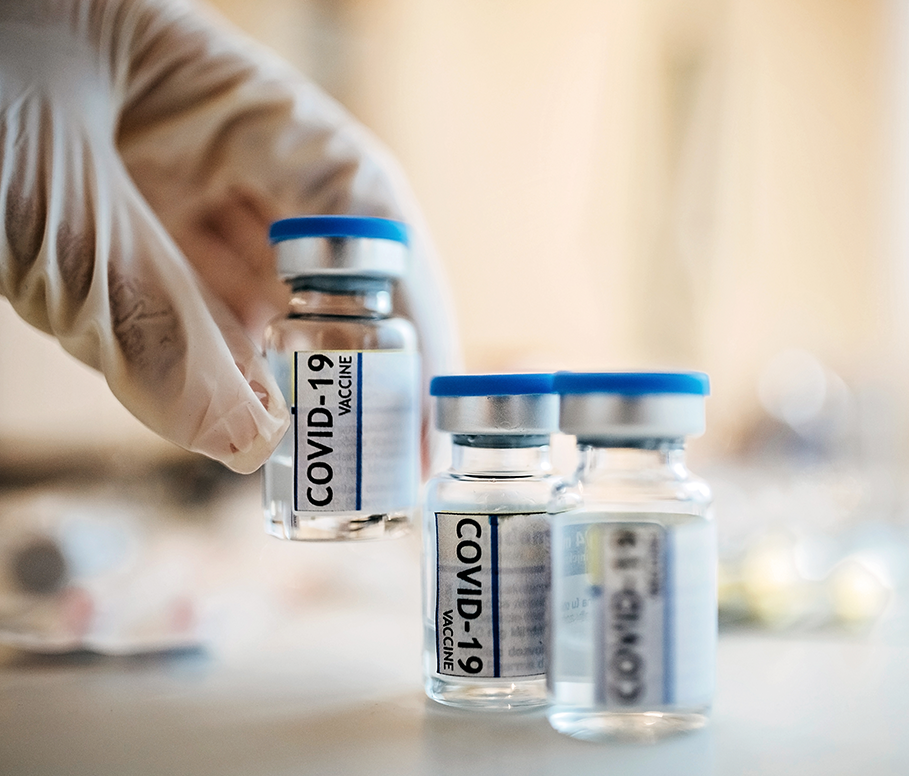The following blog post was written by the Geneva Network and originally appeared on its website.
The rapid development of new Covid-19 vaccines and treatments over the past year is a triumph of innovation. Billions of vaccine doses are being manufactured and should be distributed to all adults globally over the next 18 months. But health non-governmental organisations (NGOs) and some governments argue that suspending intellectual property (IP) rights to allow unfettered vaccine manufacture will mean faster access for developing countries.
India and SA have proposed a temporary global waiver on Covid-related IP rights to the World Trade Organization (WTO). The head of the World Health Organization, Tedros Adhanom Ghebreyesus, gave tacit support this week, warning of a “catastrophic moral failure” caused by unequal access to Covid vaccines.
Such calls are morally appealing, but misguided. IP has played a vital role in every step of vaccine research, manufacturing and distribution. In January 2020, we knew very little about Covid-19. A year on, three safe and effective vaccines have been developed and authorised for use in record time, with more than 1,000 ongoing clinical trials (219 for vaccines).
Far from delaying research, as critics claimed at the pandemic’s outset, IP rights have proven indispensable for the dozens of research consortia and partnerships that have emerged to tackle the virus.
IP rights allow potential rivals to co-operate and share valuable proprietary knowledge because they know it is legally protected from misuse. The Pfizer/BioNtech partnership behind the first vaccine to be authorised in the US would not have taken place without strong IP rights.
Others feared IP rights would make for unreasonably expensive Covid vaccines, with health NGO Médecins Sans Frontières’ calling for “no patents or profiteering”.
There is little prospect of unfair profits. Three vaccines have already been authorised by Western regulators, and numerous Chinese and Russian vaccines are available. Many more vaccines will soon arrive, each competing for market share (and a little profit, some hope). But in such a competitive market, no single company will monopolise Covid vaccines or succeed in “profiteering”.
“In two years, there could be 20 vaccines on the market,” Emily Field, head of European pharmaceutical research at Barclays explained to the BBC. “It’s going to be difficult to charge a premium price.”
Opponents of IP have been shown to be wrong about Covid-19 vaccine research and pricing. Now they blame IP for holding up the manufacture of the billions of doses required to meet global demand.
Covid-19 vaccines are complex biological products. They require huge levels of skill and know-how to manufacture, mostly held by companies as trade secrets. IP such as patents are not the most relevant factor here.
As Norwegian global health ambassador John-Arne Røttingen explains, “if you want to establish a biological production line, you need a lot of additional information, expertise, processes and biological samples, cell lines, or bacteria” to document to regulatory agencies that you have an identical product.
It’s better for the owners of new Covid vaccines to license their manufacture to partners with the skills and capacity to produce large quantities of high-quality products. These can then be distributed at scale in low- and middle-income countries — an orderly transfer of knowledge and technology.
IP has played a vital role in every step of vaccine research, manufacturing and distribution. In January 2020, we knew very little about Covid-19. A year on, three safe and effective vaccines have been developed and authorised for use in record time, with more than 1,000 ongoing clinical trials (219 for vaccines).
Voluntary licensing
It’s happening already, with new manufacturing licensing deals such as those between AstraZeneca and Novavax, and the Serum Institute in India, which will allow billions of doses to be manufactured over the next months. Covax, a new multilateral vaccine procurement body for distribution in lower-income countries, will buy many of them.
Voluntary IP licensing has been deployed successfully in the past, notably for distributing innovative hepatitis C medicines in lower-income countries. Critics opposed those deals too, at first.
A zero IP world would be a backward step and discourage companies from making urgently needed refinements to existing vaccines to combat new Covid-19 variants.
It would derail the dozens of vaccine-manufacturing licensing deals, throwing global supply chains into chaos. And it would take far longer than letting the manufacturing licensing deals that already exist get into their stride. It’s difficult to see how the transfer of manufacturing know-how would take place under such a scenario.
When the next pandemic comes, few companies will want to invest in new vaccines if they stand to have little control over the output.
Misguided calls to suspend IP rights sound high-minded, but the ethical appeal of such actions fades given the harm they would inflict on future generations and ourselves when we face a disease that is hard to cure now.
Instead of sowing division and creating major distractions at venues such as the WTO, opponents of IP should stop the rhetoric. The IP system has accelerated the end of the pandemic. We should let it finish this critical job.


